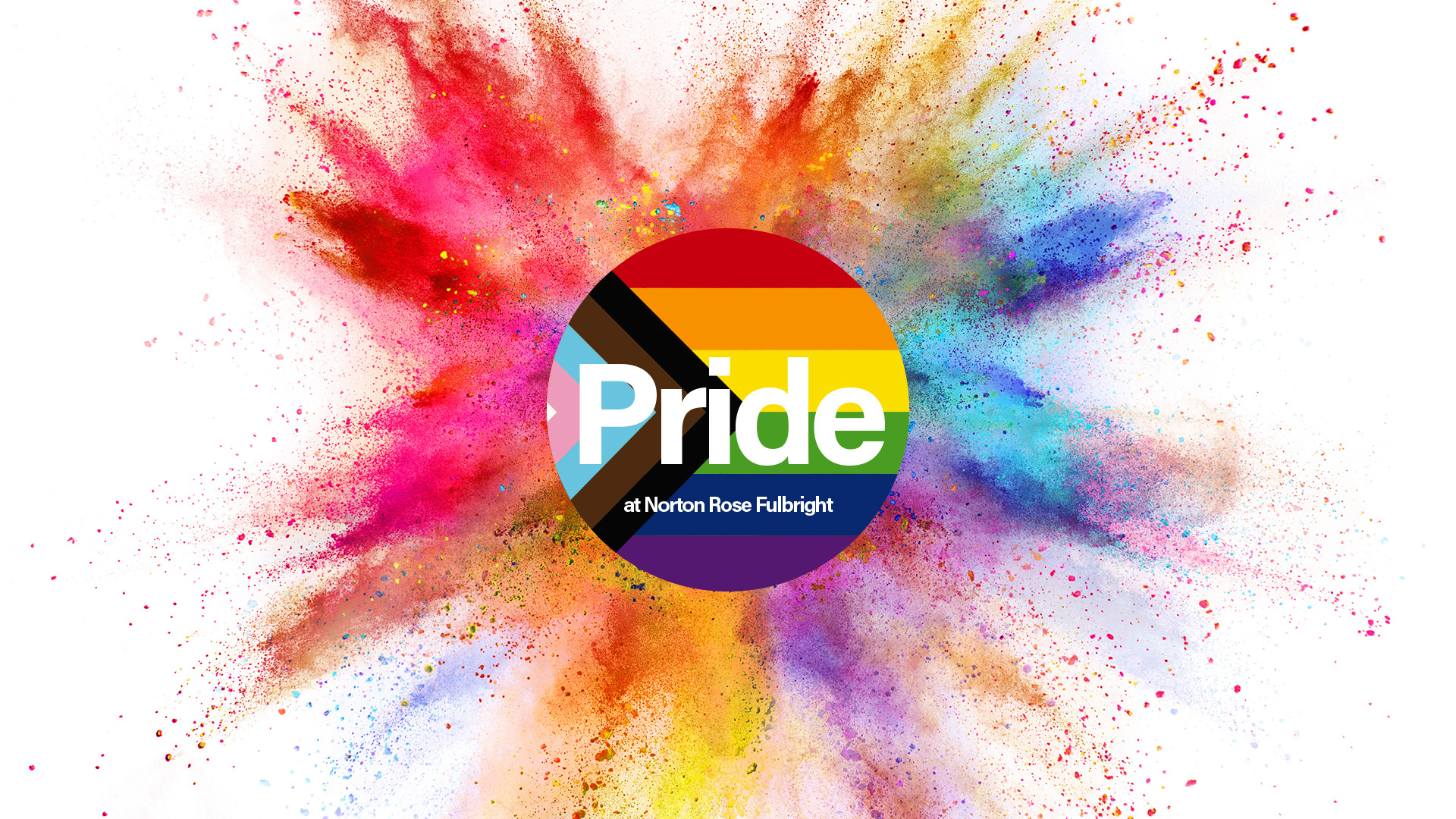Laura Hodgson, Knowledge Director in London, talks about the benefits and challenges of being out at work and the evolution of the Pride network and an LGBTQI+ inclusive culture at Norton Rose Fulbright.
When Laura joined Norton Rose Fulbright 18 years ago as a paralegal she took the decision early on in her career that it was safer to be openly out.
“If everybody knows that you are gay then you don’t find yourself in a situation where people can say things that make you feel uncomfortable,” says Laura. “I avoid hearing those things because I’m well known in the firm and I’ve been open for a long time. That makes life easier.”
Having started her career at another law firm that, 20 years ago, was home to very few women and held its Christmas parties in strip clubs, she says the Norton Rose culture was immediately more inclusive. “Back then, Norton Rose wasn’t exactly as open and diverse as it is now, but it was a different culture that was not as uncomfortable,” she says. “Over the years, people’s differences have become part of the fabric of the culture.”
While coming out professionally was never a standout moment, the same was not true in Laura’s personal life. Growing up with parents that worked in the media, she was a child of liberals who had been involved in the civil rights movement in the Sixties.
Still, she says: “When I came out to my parents at 18 they were extremely unpleasant about it, which I found quite difficult and which was uncomfortable for several years. I actually found coming out in a professional context easier, because there was less emotional baggage associated with it.”
Laura has seen how coming out to colleagues is harder for some people than others. “If you’re married it’s not so difficult,” she says. “People ask if you have a husband, and you simply tell them you have a wife. If you’re single that is harder – whether you are heterosexual or gay – because people are more quizzical about your private life. I have been in a relationship for a long time and people know my wife.”
Laura was one of the founders of the firm’s Pride network when it started in London 11 years ago, having met up with a number of colleagues at events organised by others in the City to talk about LGBTQI+ inclusion and seen an opportunity to bring those conversations back into the firm.
“It started by asking favours of partners really – asking if we could do it,” she says. “There was some pushback from people saying that we didn’t really need a network because our culture was already quite positive, but it was never about stamping out bad behaviour, just engaging with others, including clients, through new social networks.”




